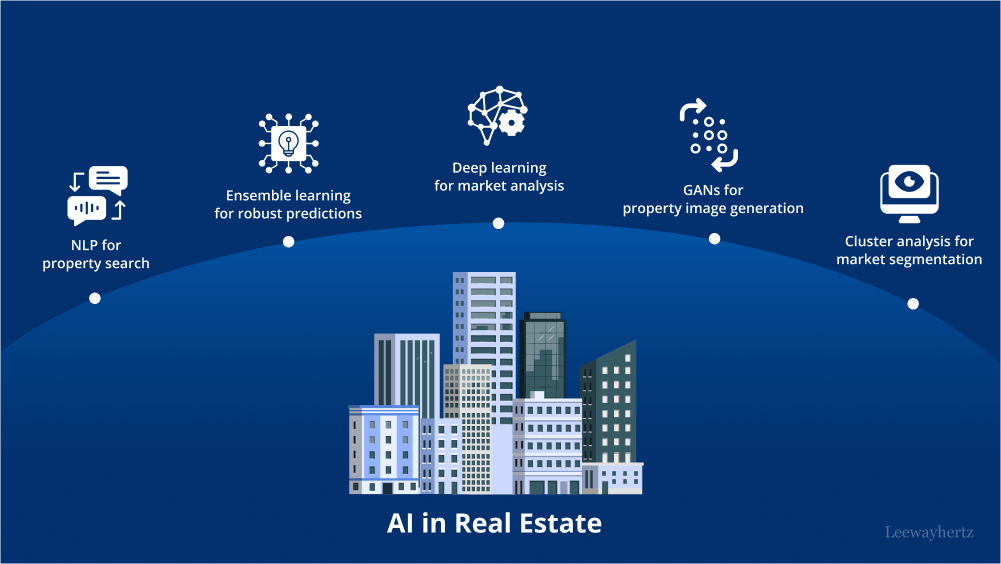Artificial Intelligence (AI) is rapidly transforming the real estate industry, offering new efficiencies and reshaping how properties are bought, sold, and managed. As AI technologies mature, they’re redefining traditional roles and unlocking data-driven insights that were once unimaginable.
How is AI Shaping the Future of Real Estate?
AI in real estate involves using machine learning, data analytics, and automation to improve processes, enhance customer experiences, and optimize decision-making. From predictive pricing to intelligent property management, AI is becoming a core part of modern real estate operations.
Key Trends Driving the Future of AI in Real Estate
Predictive Analytics and Market Forecasting
AI can analyze massive datasets—including property history, market trends, economic indicators, and buyer behavior—to forecast pricing trends and investment opportunities. This helps agents, investors, and developers make informed, data-backed decisions with reduced risk.
Smart Property Search and Recommendations
AI-powered search engines on real estate platforms personalize property suggestions based on a user’s preferences, behavior, and budget. These intelligent systems improve the home-hunting experience, making it faster and more relevant for buyers and renters.
Virtual Tours and Chatbots
AI enhances the virtual experience with 3D property tours, automated video walkthroughs, and AI-driven chatbots that can answer buyer inquiries 24/7. These tools reduce the need for physical visits and streamline the customer service process.
Automated Valuation Models (AVMs)
AI can provide instant and accurate property valuations by analyzing local sales data, market trends, and property features. These models help buyers and sellers quickly assess a property’s worth without relying solely on traditional appraisals.
AI in Property Management
Smart building systems powered by AI can monitor utilities, predict maintenance needs, and optimize energy use. Landlords and property managers can also use AI tools for tenant screening, rent collection, and lease management—reducing costs and improving efficiency.
Fraud Detection and Risk Assessment
AI algorithms can detect unusual patterns in transactions or applications, helping to flag potential fraud or risk. This strengthens financial and legal compliance for real estate agencies and financial institutions.
Challenges and Considerations
As AI becomes more embedded in real estate, several important challenges must be addressed:
- Data Privacy: AI systems rely on large amounts of user data, raising concerns about security and consent.
- Job Displacement: Automation could reduce the need for certain roles, impacting employment in the sector.
- Bias and Fairness: AI models must be carefully monitored to avoid bias in tenant screening, lending decisions, or pricing.
Conclusion
The future of real estate is data-driven, intelligent, and customer-centric—powered by AI. As the industry evolves, embracing AI responsibly will be key to unlocking its full potential. Real estate professionals who adapt early to AI technologies will gain a competitive edge, offering smarter services and creating more value for clients in the years to come.







Leave feedback about this